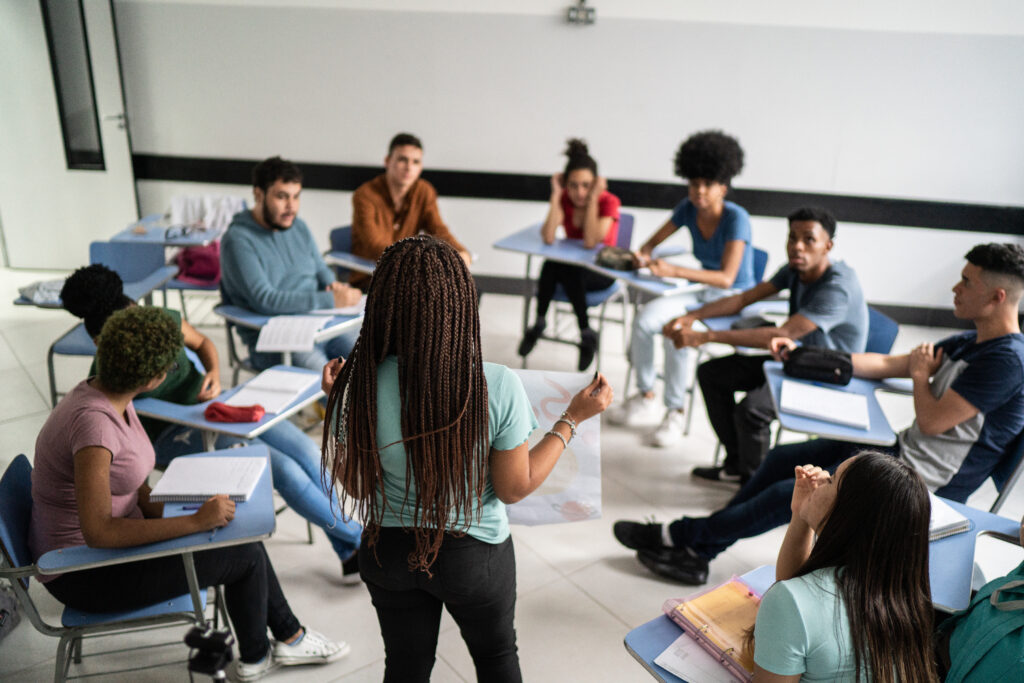High School Transitions

At the request of Chicago Public Schools, the Education Lab conducted the High School Transitions project, which leveraged predictive analytics to identify students at risk of dropping out of high school as early as 7th grade and paired them with a summer enrichment program to help them get back on track.
Challenge
Despite progress in high school graduation rates, there are still significant disparities in educational outcomes across student groups. Identifying the most at-risk students and providing them with dropout prevention support early in their schooling is crucial to closing these gaps.
Opportunity
The Education Lab and CPS piloted a program using predictive analytics to identify and support 7th graders who were not consistently coming to school, were experiencing behavioral challenges, or needed extra academic skill-building support. Identified schools and students were then enrolled in the Teen Outreach Program (TOP), a CPS summer program that provided mentorship and skill-building to participants.
Project overview
Chicago Public Schools (CPS) has made substantial progress in student achievement by increasing its graduation rate from 69% to 84% since 2013. However, these improvements have not been realized universally, and racial and economic disparities in educational attainment persist. What would happen to these disparities if we could identify these students who were falling short of graduation earlier – as early as 7th grade- to provide support to get back on track?
In 2016, the Education Lab partnered with CPS to pilot High School Transitions, a summer support program for 7th graders who were not consistently coming to school, were experiencing behavioral challenges, and/or needed extra academic skill-building support. The Education Lab analyzed students’ behavior and performance, such as attendance, misconduct, and test scores, to learn their relationship to important future outcomes such as high school graduation. Rising middle-school students identified as having the lowest likelihood of graduating were prioritized for summer programming services.
This study allowed the Education Lab to understand what happened to students identified as unlikely to graduate. The results are striking. In the 2008-2009 school year, of the 10% of students identified with the highest high school dropout risk, fully 70% did not graduate high school within seven years. These findings suggest that we can use data to accurately identify students earlier in their schooling trajectories and target them with supports that increase their chances of later success.
This predictive model was used to help CPS prioritize students for the High School Transitions program. The summer program used the Wyman Center’s Teen Outreach Program (TOP) curriculum, which includes community service learning, in which young people design and develop a project that would benefit their school community; youth development to build community and positive social norms; skill building around decision-making, communication, relationships, and leadership skills; and supplemental activities such as field trips.
The Education Lab then evaluated the impact for students targeted for support compared to those not. Results were suggestive of positive outcomes in GPA, attendance rates, reading scores, course failures, unexcused absences, and enrollment, but none were statistically significant. Still, this early project in the Education Lab’s history demonstrates how data can be used to target resources for the students who would benefit most. We also found that predictive modeling can reliably identify student characteristics that may indicate a greater likelihood of not graduating, paving the way for more targeted interventions early on in students’ schooling.

Connect & Redirect to Respect: Final Report
Report on Connect & Redirect to Respect

